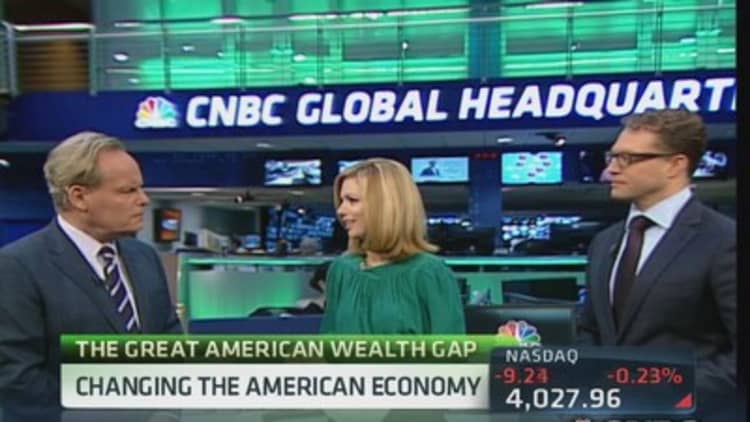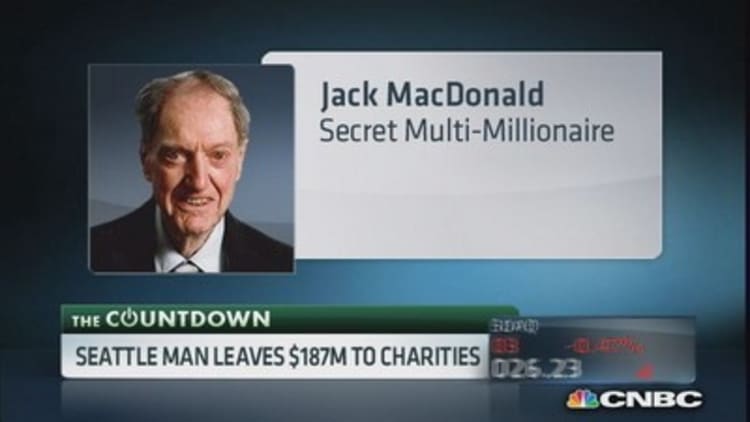President Barack Obama took to the podium Wednesday to highlight one of America's deepest economic problems: inequality.
Inequality, he said, is "morally wrong" and "bad economics."
There is no question that inequality is disturbingly high. Even Rupert Murdoch said so earlier this month, warning in a tweet that America is becoming a "class society."
But setting aside the tiresome, partisan screaming on both sides about the consequences of inequality and how to solve it, the renewed discussion of inequality is flawed by a disregard for actual data.
(Read more: 'Stop bashing the rich,' says London's mayor)

In his speech Obama said, "growth is more fragile and recessions are more frequent in countries with greater inequality."
He added that indebted households spend less, while "concentrated wealth is less likely to result in consumer spending," since the rich spend a smaller share of their income.
Obama's comments reflect a growing assumption that our current economic problems—high unemployment and weak consumer demand—are rooted in a sudden surge in inequality.
Business Insider's Henry Blodget, in an otherwise well-reasoned call for a higher minimum wage, makes the case that the "overlords" are not sharing enough wealth with the "serfs."
"When inequality gets bad enough, serfs can't afford to buy products from overlords," he wrote. "The serfs are tapped out," and "the overlords are responding by cutting costs (firing serfs) to increase profits."
(Read more: Richest 1% earn biggest share since Roaring '20s)
Joseph Stiglitz has been writing for years about how rising inequality is a direct cause of our slower growth. "Politicians typically talk about rising inequality and the sluggish recovery as separate phenomena, when they are in fact intertwined," he wrote in The New York Times. "Inequality stifles, restrains and holds back our growth."
The trouble with this analysis is that inequality has been higher when economic growth is strong. In 2007, unemployment was under 4.5 percent. But the top 1 percent of earners controlled 23.5 percent of income (including capital gains). Today, unemployment is 7.3 percent. But the top 1 percent control a smaller share of income—specifically 22.46 percent.
The previous spike in inequality was during the boom in 1999 and 2000. It declined during the 2000 recession and declined again during the financial crisis in 2009.

(Read more: Millionaires grow cautious about the market)
This is not to diminish the importance or level of inequality. Inequality in America is high—both in wealth and income terms, and relative to other countries. And the current split between the haves and have-mores has no doubt grown in recent years as the "asset rich" have benefited from easy money from the Federal Reserve.
But inequality is still below where it was during the good times. And this shows that inequality may more of a by-product of strong stock markets, rather than a cause of economic decline.
—By CNBC's Robert Frank. Follow him on Twitter @robtfrank.


